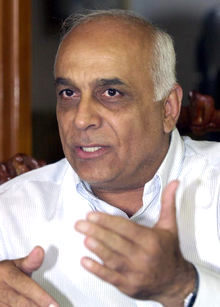 |
1.) The Al-Anfal Massacre. Currently, the Iraqi court is hearing the details of Al-Anfal, the name given to the horrible chemical bombing of Iraqi Kurds in 1988, in which thousands of Kurds were poisoned. Hussein is thought to have given the orders for the bombing. However, so many serious questions are looming over those involved, particularly the role of the U.S. in arming Hussein. It is known that the U.S. adopted Hussein as an ally in 1982 for the sake of waging a war against Iran. The U.S. encouraged the Arab states on the Persian Gulf to finance Hussein and asked Western countries to extend military help. Hussein didn’t have any chemical weapons before 1982, but managed to develop this capability during the war. Who extended the know-how, and who supplied the necessary equipment? It wasn’t the Soviet Union or China or North Korea because they were extremely dissatisfied with his alliance with Western countries. And it is legitimately asked: Did the U.S. know about the chemical activities of Hussein? If not, why not? Knowing that its presence in Iraq at the time was widespread and that it had access to all kinds of information, why was the U.S. unaware of Hussein’s capabilities? Most importantly, Did the U.S. know that Hussein was thinking of chemicalizing the Kurds? And, if so, why didn’t they stop him? Why was their reaction to the chemical bombing so mild and diplomatic? Only Hussein could answer some of these questions, and he could have been an extremely "inconvenient" witness for the U.S. side. 2.) The war on Iran. Why did the U.S. incite Hussein to wage a war against Iran? What was the role of the Arab states? What was the role of the Europeans? Why was America assisting Hussein, but leaking information to Iran about Iraq’s military capability? Why was the U.S. interested in keeping the Iraq-Iran war going, with all of its bloodshed and atrocity? Certainly, Hussein carried with him so many specific details about these questions, and certainly the U.S. can breathe a sigh of relief in his absence. 3.) The invasion of Kuwait. We badly need to know about the U.S. role in Hussein’s invasion of Kuwait in 1990. It is thought by some analysts that the U.S. ambassador in Iraq at the time gave strong indications to Hussein that the U.S. would not react militarily if Kuwait were invaded. Is that true? Why was the U.S. so soft on Hussein’s mobilization of troops on the borders with Kuwait? Why didn’t they issue any statements that could have stopped Hussein? Was the U.S. interested in that invasion so as to create the justification for considerable military mobilization in the Gulf? Certainly, Hussein would have had much to say. 4.) The oil-for-food program. It is known that the United Nations developed this program after the Security Council decided on the international siege on Iraq. The U.N. started to supervise Iraqi oil exports and channel the revenues in a way to help the Iraqi people eat. But much of the oil was misused, and the revenues were exposed to corruption. Who was responsible for the corruption, and who robbed the Iraqis of their money? All of the above questions throw big doubts on the U.S. role in hanging Hussein so quickly. It is known that the logic of legality doesn’t accept the execution of a person before completing an interrogation or a trial. At the least, Hussein might have had information essential to national or civil security. Hussein, for sure, had so much information concerning individuals, organizations, and states, and could have been very helpful in charting the historical development of very important political and military activities. But we will never know what light he might have shed on many unresolved issues. Please direct questions or comments to [englishhani@hani.co.kr]





